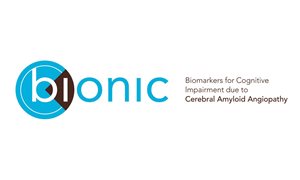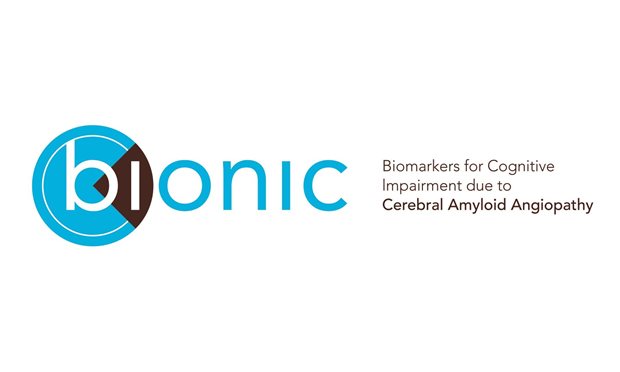

Background of the BIONIC project
Diagnosis of cerebral amyloid angiopathy (CAA) currently relies on the 'Boston criteria', which are based on MRI markers. However, these criteria are based on late and indirect hemorrhagic markers of CAA and do not provide definitive proof of the disease; this hampers early diagnosis. read moreBackground of the BIONIC project
The need for new biomarkers of cerebral amyloid angiopathy
Diagnosis of cerebral amyloid angiopathy (CAA) CAA currently relies on the 'Boston criteria', which are based on MRI markers. However, these criteria are based on late and indirect hemorrhagic markers of CAA and do not provide definitive proof of the disease; this hampers early diagnosis. Thus, novel biomarkers are needed. Cerebrospinal fluid (CSF) and blood biomarkers have proven to be a good option.The role of CAA biomarkers in detecting Amyloid Related Imaging Abnormalities
Treatment of Alzheimer disease(AD) patients with anti-Amyloid β immunotherapy is complicated by the occurrence of serious side effects, “Amyloid Related Imaging Abnormalities “(ARIA), causing seizures, neurological deficits and behavioral changes. It is thought that presence of severe CAA is a risk factor for the occurrence of ARIA. So, CAA biomarkers may also be instrumental in identifying patients at high risk for ARIA.BIONIC: BIOmarkers for cogNitive Impairment due to Cerebral amyloid angiopathy.
Methods
Different protein measurement technologies including ELISA, mass spectrometry and SIMOA technology will be used to develop sensitive assays for quantification of previously identified candidate CAA biomarkers, e.g. amyloid β peptides, proteolytic enzymes, heat shock and inflammatory proteins. read moreMethods
Different protein measurement technologies including ELISA, mass spectrometry and SIMOA technology will be used to develop sensitive assays for quantification of previously identified candidate CAA biomarkers, e.g. amyloid β peptides, proteolytic enzymes, heat shock and inflammatory proteins.Then, we will investigate the association of these biomarkers with the occurrence of CAA in several groups of patients: sporadic and hereditary CAA patients, dementia patients and healthy controls. In addition, we will correlate clinical symptoms, cognitive functioning and radiological findings to biomarker levels.
By means of qualitative research, focus group interviews with patients, care-givers and clinicians, and a workshop, we will acquire insight into the acceptance and desirability of these biomarkers by envisioned users.
Lastly, our selected biomarkers will be quantified in CSF from participants in an anti-Aß immunotherapy trial, to study their correlation with the occurrence of ARIA. Hereto, participants will be selected from a phase 2 randomized controlled trial for anti-Aß immunotherapy as part of the European Prevention of Alzheimer’s Dementia consortium (EPAD). EPAD is a longitudinal cohort study which aims to recruit 6000 persons across the risk spectrum for AD from existing observational cohorts.
Duration of the project
The duration of the project is 4 years, start in 2018.Partners
- Leiden University Medical Center
- ADx NeuroSciences
